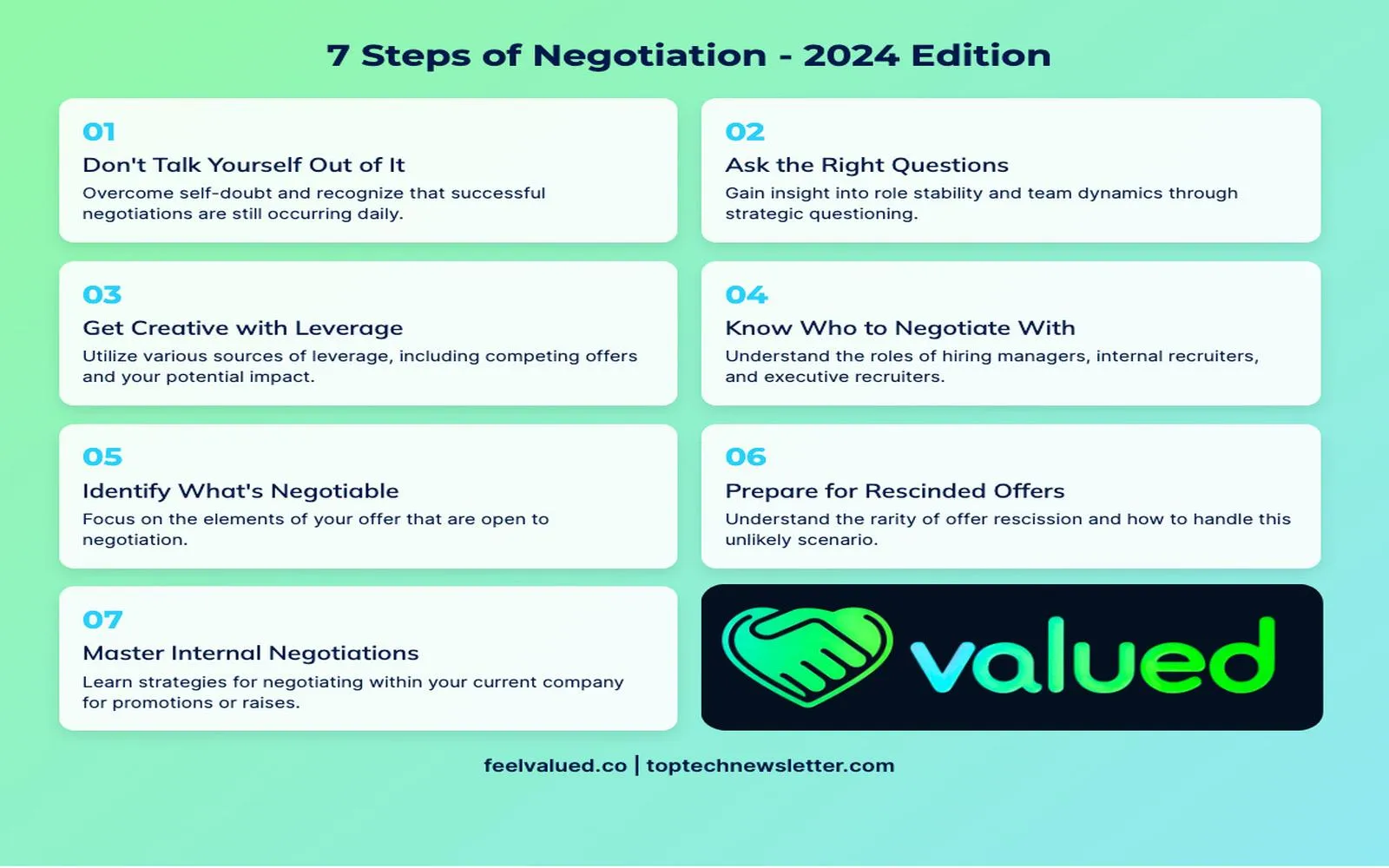1. Research Market Rates
Before entering a salary negotiation, it's crucial to understand the current market rates for your position. Utilize resources like Glassdoor, Payscale, and LinkedIn Salary to gather data on what similar roles are paying in your area. This information will empower you during negotiations, helping you articulate your expectations based on market standards.
2. Know Your Worth
Assess your skills, experience, and the unique value you bring to the table. Highlight your accomplishments, certifications, and any specialized knowledge that can justify a higher salary. A strong understanding of your worth allows you to confidently advocate for yourself during negotiations.
3. Prepare Your Pitch
Craft a compelling narrative around why you deserve the salary you’re asking for. Prepare to discuss your achievements and how they align with the company’s goals. Presenting a well-structured pitch can significantly enhance your chances of a successful negotiation.
4. Practice Active Listening
During negotiations, be sure to listen actively to the recruiter’s perspective. Understanding their constraints and reasoning can help you tailor your responses and find common ground. This collaborative approach can lead to a more favorable outcome for both parties.
5. Be Open to Benefits
Salary isn’t the only component of compensation. Be open to discussing other benefits, such as bonuses, stock options, remote work flexibility, and professional development opportunities. Sometimes, a lower salary can be offset by additional perks that enhance your overall compensation package.
6. Timing is Key
Choose the right moment to initiate your salary discussion. Ideally, this should happen after you've been offered the position but before you formally accept. If you bring it up too early, it may undermine your chances of getting a competitive offer.
7. Stay Professional and Positive
Maintain a professional demeanor throughout the negotiation process. Express gratitude for the offer and convey your enthusiasm for the role. A positive attitude can go a long way in creating a collaborative atmosphere for negotiations.
8. Know When to Walk Away
Finally, it’s vital to recognize when a negotiation isn’t going in your favor. If the offer doesn’t align with your expectations and you feel undervalued, it’s okay to walk away. Knowing your limits protects your self-worth and opens doors for better opportunities elsewhere.
Chart: Salary Negotiation Tips at a Glance
| Tip | Description |
|---|---|
| Research Market Rates | Utilize online resources to benchmark your salary expectations. |
| Know Your Worth | Evaluate your skills and experiences to determine your value. |
| Prepare Your Pitch | Craft a structured argument highlighting your achievements. |
| Practice Active Listening | Engage with the recruiter to understand their needs and constraints. |
| Be Open to Benefits | Consider non-salary benefits that may enhance your total compensation. |
| Timing is Key | Initiate salary discussions after receiving the job offer. |
| Stay Professional and Positive | Maintain a positive attitude throughout the negotiation process. |
| Know When to Walk Away | Recognize when an offer doesn’t meet your expectations and have the courage to decline. |
By implementing these salary negotiation tips from recruiters in the tech industry, you can enhance your chances of securing a better compensation package. Remember, successful negotiations are built on preparation, confidence, and clear communication.
Whether you’re a seasoned professional or just starting in the tech field, understanding the dynamics of salary negotiations can significantly impact your career trajectory. Embrace these strategies and approach your next negotiation with the assurance that you deserve what you’re asking for.





